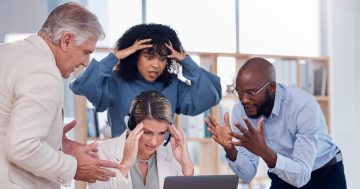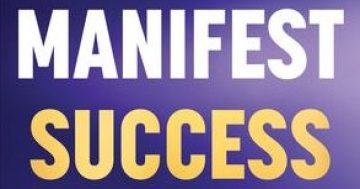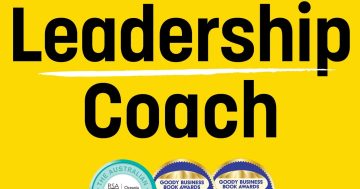May Busch* says that learning is easy in an environment dedicated to it, but in the workplace different strategies are sometimes needed.
 As Senior Advisor and Executive in Residence at Arizona State University, I get to spend some quality time on the university’s campus.
As Senior Advisor and Executive in Residence at Arizona State University, I get to spend some quality time on the university’s campus.
It’s an ideal situation for anyone interested in personal and professional development.
In contrast, once we get into the work environment it can be difficult to keep learning and developing ourselves.
There’s no instructor providing a syllabus and no set curriculum we’re supposed to be learning.
This absence of guidance means you have to be much more intentional about your self-development if you don’t want to fall behind.
In fact, there are two common challenges we all face that can keep us from continuing to learn and develop while we’re working.
What to learn?
As a self-proclaimed life-long learner, I know how overwhelming it can be to sift through the vast amounts of information available.
To figure out what topics to learn about, think about the following three areas for development.
Working on Your Self: This is about your self-awareness. Notice your presence. How are you coming across? How’s your mental game?
Working with People: Are you being a good leader? Are you communicating well? How are you relating to stakeholders?
Working on the Organisation: Are you being strategic? Are you making good decisions? Growing the set of opportunities?
Working on these three key areas will always stand you in good stead, but to get the biggest pay-off for your efforts, it’s best to focus on one at a time.
Choose the one that will most help you become more successful if you work on it right now.
How to learn?
This is about finding the best way to go about that learning.
For some, it might be taking a course or even getting a degree.
For those of us who can’t or don’t want to take time off work to study formally, the easiest and most effective way to learn is to develop a reading habit.
To help feed that habit, there are three books I recommend.
Start with the one that intrigues you or that will help you the most right now.
For Working on Your Self and Your Self-Awareness: Mindset by Carol Dweck which talks about the difference between having a growth mindset and a fixed mindset.
My biggest takeaway from this was how to think about failure.
I’ve always had this huge fear of failure.
It drove me to achieve and accomplish in my chosen field, but also kept me from playing bigger and being the very best I could be.
My mindset kept me in my comfort zone, and it was only when my boss moved on that I (as his deputy) was forced to find a new role.
Reading Mindset has helped me see failure as a learning and growth opportunity, which has taken a lot of the pressure off for me.
For Working with People: The Coaching Habit: Say Less, Ask More & Change the Way You Lead Forever by Michael Bungay Stanier.
My big take away from this book is that as a leader, you don’t need to have all the answers.
Often, the most important thing is to ask a good question.
This can really empower your team and allow them to shine.
Plus, as a leader you always have the option to share your input after they’ve given an answer.
For Working on the Business: The 4 Disciplines of Execution: Achieving Your Wildly Important Goals by Sean Covey, Chris McChesney and Jim Huling.
This book has been super helpful for me because I indeed work in a whirlwind — some that I create, and others that just happen.
In my world, there are always deadlines, lots of things going on, and attractive shiny objects to chase.
This book has really helped me focus on the most important goals that are not yet urgent, and to make time to get them done.
This includes getting my team to buy into them too so that we’re all working together.
I hope these three suggestions give you some food for thought in your ongoing self-development journey.
Whether you’ve got a reading habit already or need to make a fresh start, spending just five-to-10 minutes a day can go a long way.
*May Busch helps leaders and their organisations achieve their full potential. She can be contacted at [email protected].
A longer version of this article appears on May’s blogsite.











